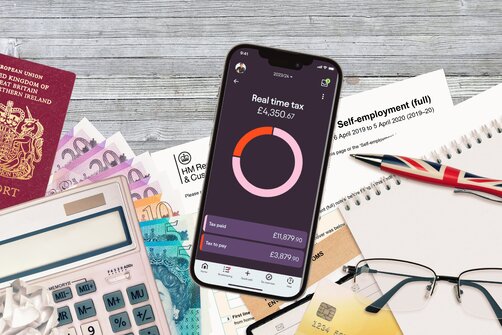Understanding Tax Obligations for YouTubers

Being a successful YouTuber doesn't just come from creating compelling content; it also involves understanding and managing your finances effectively. A common question among content creators is whether they need to pay taxes on their YouTube earnings. The short answer is yes. As a YouTuber, the income you generate from ad revenue, sponsorships, and other forms of monetization is subject to taxation.
Taxes can become quite complex, especially when dealing with different income streams. YouTube revenue can come from various sources such as AdSense, brand deals, and fan donations. Each source may have different tax implications. Therefore, it's crucial to have a solid understanding of your tax obligations to avoid pitfalls and penalties.
Using tools like the Pie Tax App can simplify the entire tax process, ensuring that you remain compliant while maximizing your earnings. The app can help you track income, calculate taxes owed, and even file returns effortlessly. Additionally, expert tax assistants available on the Pie app can provide personalized advice to suit your unique financial situation.
Income Sources for YouTubers
YouTube content creators earn from various streams, the most common being AdSense and brand partnerships. Understanding the nature of each income source is critical for tax reporting. AdSense payments often involve direct deposits or cheques and are relatively straightforward. However, brand partnerships can be more complicated due to contracts and commission structures.


Deductible Expenses
Knowing which expenses are deductible can significantly affect your tax liability. You can often deduct equipment costs (such as cameras and lights), software subscriptions, and office supplies used exclusively for your YouTube business.

According to a recent survey, 60% of YouTubers earn between £100-£1,000 monthly. Another report shows that top-performing YouTubers can earn upwards of £100,000 annually. These statistics highlight the vast earning potential but also underscore the importance of proper tax management.Recent Earnings Statistics

Recent data shows that 57% of small business owners fail to file their taxes correctly. This statistic includes YouTubers who might overlook their tax obligations. Additionally, 30% of new YouTubers are unaware they need to pay taxes on their income, putting them at risk for penalties.Tax Filing Statistics

Income Disclaimer
Not all YouTubers earn significant income. Your earnings depend on various factors, including view counts, engagement rates, and niche. These variables impact your tax liabilities directly. YouTube earnings can be inconsistent, making it vital to have an organised system for tracking your income and expenses.
Even if you have a lucrative month followed by a lean period, your overall annual revenue will determine your tax liabilities. Keeping detailed records will help you accurately report your income and claim any rightful deductions, reducing potential financial strain during tax season.
Seasonality of Earnings
Another aspect to consider is the seasonal nature of YouTube earnings. Holiday seasons and specific times of the year often see an increase in ad revenue and brand deals. However, this seasonality can make it tricky to manage your cash flow throughout the year.
Effective tax planning involves setting aside a portion of your income during high-earning months to cover any tax liabilities. This financial prudence ensures that you won't be caught off guard when tax deadlines approach.

Tax Tips for Content Creators

Maintain thorough records of income sources and expenses. This helps ensure accurate tax reporting and deduction claims.Keeping Detailed Records

Take advantage of allowable deductions such as equipment, software, and office space used for content creation purposes.Maximizing Deductions

Consult with a tax expert familiar with creative industries. They can provide tailored guidance on VAT, expenses, and tax planning.Seek Professional Advice

Fun Fact
Did you know that the first-ever video on YouTube was uploaded in 2005 and drew in zero ad revenue? Times have certainly changed!
Practical Tax Management Steps

It's crucial to keep track of all your income and expenses methodically. Using apps like Pie Tax can streamline this process. The app allows you to sync your bank accounts, making it easier to monitor income and categorise expenses automatically.
It’s also beneficial to consult with tax professionals or expert tax assistants available on the Pie app who understand the nuances of online income. They can help you navigate your responsibilities, avoid common mistakes, and find potential deductions.

Accurate record-keeping is essential. Store all receipts, invoices, and financial statements related to your YouTube activities. This makes it easier to substantiate your income and expenses during tax season.Keeping Detailed Records

If you expect to owe over a certain amount in taxes, you must make quarterly tax payments. Calculate these payments based on your estimated annual income to avoid penalties.Managing Quarterly Taxes
Summary
Managing your YouTube income and fulfilling tax obligations can seem daunting but using tools like the Pie Tax App simplifies the process. The app not only helps you track your income and expenses but also offers personalized advice from expert tax assistants available on the Pie app. Keeping detailed records and understanding your income streams and deductible expenses are key strategies to maximizing your YouTube revenue.
In conclusion, maximizing your YouTube earnings isn't just about generating more views or finding lucrative brand deals. It’s also about understanding the tax landscape and managing your finances carefully. Investing in tools like the Pie Tax App lets you focus on what you do best – creating engaging content, while ensuring you stay compliant and optimize your earnings.




